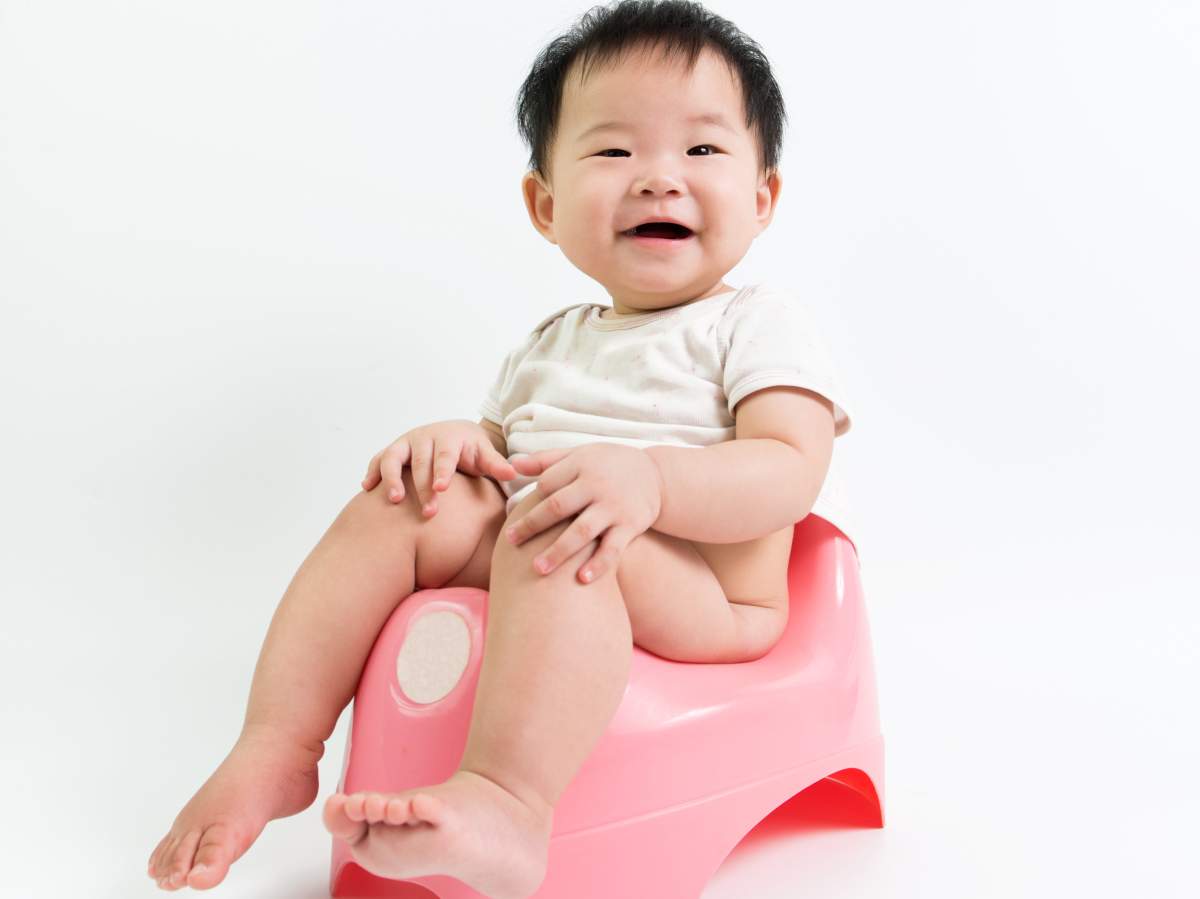Like most things regarding parenting, potty training and when it should happen, is not a clear-cut issue. The Canadian Pediatric Society says that kids only achieve bladder and bowel control between 24 and 48 months, but some parents start holding their kids over the potty as early as five weeks.

“When my first baby was five-weeks-old, she would writhe and grunt in the mornings,” Amber Hatch, author of Nappy Free Baby, said to The Guardian. “I held her over an ice-cream tub so her pelvic floor was open. Straight away, she did a wee and a poo. I was absolutely amazed. From that moment, I was hooked.”
WATCH BELOW: Helping kids avoid common toilet troubles

Hatch was “hooked” on a method called elimination communication (EC), which states that by following an infant’s natural timing for elimination and establishing cues to help them recognize when it’s time to go, potty training can be achieved much earlier.
In a recent paper published in the journal Pediatrics, Rosemary She, a pathologist at Keck School of Medicine at the University of Southern California, and Jeffrey Bender, a pediatric infectious-disease specialist at Children’s Hospital Los Angeles, wrote:

Get weekly health news
“Contrary to the notion that infants relieve themselves randomly and constantly throughout the day, infants naturally eliminate at predictable times, such as on waking or after feeding. Caregivers can incorporate audio cues (soft whistle or hum) to associate with the act of eliminating. With practice, many children learn to eliminate when they are in proper position and hear the cue.”
She and Bender, who have three children together, used EC (which is also known as natural infant hygiene) to train their youngest child. They decided to try it because they didn’t want to continue using disposable diapers, which are environmentally unfriendly, nor did they think the washing and drying associated with cloth diapers was sustainable.
They came to the conclusion by asking themselves: “How did we as humans take care of children before disposable diapers?”
Interestingly, statistics indicate that approximately half of all children raised outside North America are potty trained by the time they turn one, and 80 per cent are diaper free by 12 to 18 months. She and Bender point out that EC was a common practice among American families up to three to four generations ago, but say the invention of the disposable diaper in 1955 made early potty training less urgent. Now, kids can be in diapers as late as four years, which Bender says can make them more prone to issues like urinary tract infections.
But how realistic is EC?
READ MORE: From diapers to the big flush, potty training requires patience
“It’s more of a lifestyle choice and probably not an ideal method for mainstream parents,” says Ishtar Gabriel, a registered psychotherapist and founder of The Toddler Trainer. “If a child is with their mother all the time, strapped to her back as she’s working, for example, then she’ll be more in tune with the child’s cues. But for working parents who send their kids to daycare, it’s not attainable.”
She also says that “potty trained” means different things to different people. If a parent is still solely responsible for taking the child to the bathroom for scheduled breaks, that doesn’t mean the kid is potty trained — there’s no childhood development needed for elimination, they do that naturally.
“Until the child initiates going to the bathroom and remembers to go by themselves, they’re not potty trained. And it usually doesn’t happen until about three-and-a-half years,” she says.
The other issue with EC is that children don’t develop the ability to hold in their bodily functions until anywhere between 18 months and two-and-a-half years.
“Obviously it would be great to have kids learn to use the toilet by age one,” Dr. Andrea C.S. McCoy, medical director at Temple Pediatric Care in Philadelphia, said to WebMD. “Unfortunately, their muscles and nerves are not mature enough to really be able to consistently hold urine and stool, relax to allow spontaneous voiding and stooling, and recognize the need to ‘go.'”
READ MORE: Should women drink alcohol when they’re breastfeeding?
In addition, Gabriel thinks this is just another unnecessary pressure placed on new parents.
“You have to have all the time in the world to watch your child for signs, and most parents have a hard enough time distinguishing between their baby’s cries, never mind a grimace of their mouth,” she says. “Promoting this kind of method will leave parents feeling unsuccessful. It’s an unfair position to put them in.”










Comments